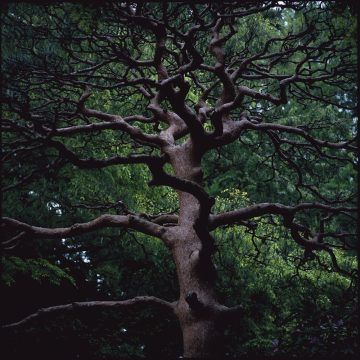Cody Delistraty at The Paris Review:
 Gagliano concluded, in a study published in a 2014 edition of Oecologia, that the shameplants had “remembered” that their being dropped from such a low height wasn’t actually a danger and realized they didn’t need to defend themselves. She believed that her experiment helped prove that “brains and neurons are a sophisticated solution but not a necessary requirement for learning.” The plants, she reasoned, were learning. The plants, she believed, were remembering. Bees, for instance, forget what they’ve learned after just a few days. These shameplants had remembered for nearly a month.
Gagliano concluded, in a study published in a 2014 edition of Oecologia, that the shameplants had “remembered” that their being dropped from such a low height wasn’t actually a danger and realized they didn’t need to defend themselves. She believed that her experiment helped prove that “brains and neurons are a sophisticated solution but not a necessary requirement for learning.” The plants, she reasoned, were learning. The plants, she believed, were remembering. Bees, for instance, forget what they’ve learned after just a few days. These shameplants had remembered for nearly a month.
The idea of a “plant intelligence”—an intelligence that goes beyond adaptation and reaction and into the realm of active memory and decision-making—has been in the air since at least the early-1970s. A shift from religion to “spirituality” in the ‘60s and ‘70s unlocked new avenues of belief, and the 1973 bestseller The Secret Life of Plants catalyzed the phenomenon. Written by Peter Tompkins and Christopher Bird, the book made some wildly unscientific claims, such as that plants can “read human minds,” “feel stress,” and “pick out” a plant murderer. Mostly, it proved to be a touchstone.
more here.
